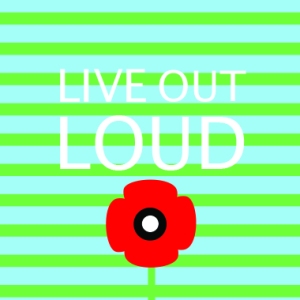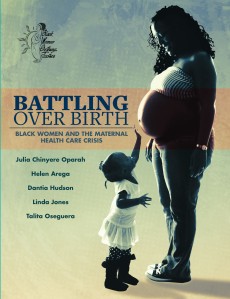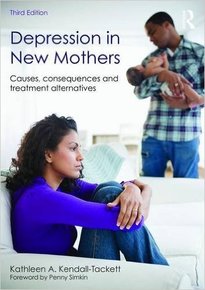We hear plenty about breastfeeding benefits for babies: what’s in it for mom?
Kathleen Kendall-Tackett, PhD, IBCLC, FAPA
A while back, a colleague sent me an Op-Ed from the Washington Post written by a group of mental health professionals who had horrid personal breastfeeding experiences, and concluded that breastfeeding was too hard and didn’t make that much difference any way. Now they encourage all the mothers in their practice to wean. Think about that. How many women have needlessly been told to wean because of these women’s negative experiences? Unfortunately, it’s another example of an anecdote being used as evidence. Their experience was bad, so they generalize that for everyone, and it’s impacted thousands of women.
 The underlying assumption is that there is no benefit for mothers when they breastfeed. It’s something I’ve heard in mental health circles for years—and it’s absolutely wrong! In terms of survival of the species, it doesn’t make sense that breastfeeding would only benefit the baby. Mothers may not be inclined to do something that does not benefit them and that wouldn’t be good for the baby. So it makes sense, in terms of survival, that mothers and babies both get something out of breastfeeding.
The underlying assumption is that there is no benefit for mothers when they breastfeed. It’s something I’ve heard in mental health circles for years—and it’s absolutely wrong! In terms of survival of the species, it doesn’t make sense that breastfeeding would only benefit the baby. Mothers may not be inclined to do something that does not benefit them and that wouldn’t be good for the baby. So it makes sense, in terms of survival, that mothers and babies both get something out of breastfeeding.
Here’s a quick summary of some of the big benefits for mothers.
Big benefits for moms
- During pregnancy, mothers enter a temporary state of metabolic syndrome (insulin resistance, higher triglycerides and lipids, more visceral fat), which is necessary to sustain a pregnancy. During the postpartum period, breastfeeding resets the mother’s metabolism to pre-pregnancy levels, and turns off the symptoms of metabolic syndrome. Otherwise, these symptoms continue into the postpartum period and beyond, eventually resulting in higher risk for diabetes and cardiovascular disease—the number one killer of women in the U.S. (Stuebe & Rich-Edwards, 2009). This is why you see significantly lower rates of diabetes and heart disease in older women who have breastfed for at least 12 months (Schwartz et al., 2009; Stuebe & Rich-Edwards, Willett, Manson, & Michels, 2005). Lowering risk for these debilitating, possibly fatal diseases, is benefit enough. But breastfeeding’s physiological effects for mothers are even more extensive.
- The human stress response involves three main components: catecholamine (fight or flight response); HPA axis (where we get the stress hormone, cortisol); and the inflammatory response system (Kendall-Tackett, 2007). In response to physical or psychological threat, all three of these systems engage. The stress response is meant to be short term. Unfortunately, chronic stress can keep this system on all the time, and when it is, mothers are at risk for depression and a wide range of health problems. So here’s the good news. Exclusive breastfeeding actually turns off the stress response (Groer & Kendall-Tackett, 2011). It’s one way that breastfeeding protects against cardiovascular disease.
- In addition, exclusive breastfeeding protects maternal mental health because it lowers the inflammatory response, and studies have consistently shown that mothers exclusively breastfeeding their babies are at lower risk of suffering depression. That does not mean that a mother who is exclusively breastfeeding her baby won’t get depressed. It means that her risk is lower, and if she does get depressed, breastfeeding will help her cope.
- Exclusive breastfeeding increases both the quality and quantity of mothers’ sleep. Many assume (as I once did) that breastfeeding mothers get less sleep. Not true. We’ve now had several large studies showing that mothers who are exclusively breastfeeding their babies report longer sleep times and feel better and more energetic during the day (Dorheim, Bondevik, Eberhard-Gran, & Bjorvatn, 2009a; Kendall-Tackett, Cong, & Hale, 2011). The number of hours that mothers report they sleep predicts depression and women who report more hours of sleep have lower rates (Dorheim, Bondevik, Eberhard-Gran, & Bjorvatn, 2009b). Moreover, if mothers sleep well, they are better able to cope with the demands of new motherhood, so that even if they do get depressed, they are likely to recover more quickly.
- Finally, breastfeeding increases mothers’ sense of well-being. When breastfeeding is going well, oxytocin is upregulated. That is the general feel-good hormone. It makes us want to be around other people, and do things for them. It helps us cope with some of the not-too-fun tasks of motherhood. Breastfeeding helps mothers overcome past trauma and not pass it along to their children (Kendall-Tackett, Cong, & Hale, 2013; Strathearn, Mamun, Najman, & O’Callaghan, 2009). It’s a chance for mothers to make a fresh start, and learn to parent differently than they were parented. For many mothers this may be the most important reason of all to breastfeed.
 All of the benefits I’ve described above happen if breastfeeding is going well. But what if it isn’t? Then there can be problems. The author of the Op-Ed from the Washington Post described some pretty grim experiences. One of the women pumped constantly and wishes she had thrown away the pump and spent more time with her baby. I had to wonder why she was pumping so furiously, especially since she described the later heartbreak of having to throw all her milk away. Why dump it? And why stockpile so much? I wish someone could have told her that it didn’t need to be that way. Not using her pump so much may have been a good idea. Similarly, her colleague described weeks of shredded nipples and toe-curling pain. Again, why? Think how much better things would have been if she had had good lactation support.
All of the benefits I’ve described above happen if breastfeeding is going well. But what if it isn’t? Then there can be problems. The author of the Op-Ed from the Washington Post described some pretty grim experiences. One of the women pumped constantly and wishes she had thrown away the pump and spent more time with her baby. I had to wonder why she was pumping so furiously, especially since she described the later heartbreak of having to throw all her milk away. Why dump it? And why stockpile so much? I wish someone could have told her that it didn’t need to be that way. Not using her pump so much may have been a good idea. Similarly, her colleague described weeks of shredded nipples and toe-curling pain. Again, why? Think how much better things would have been if she had had good lactation support.
So once again, the criticism about breastfeeding really points to a lack of support for new mothers, rather than problems with breastfeeding per se. If we continue to treat mothers so badly and expect them to fend for themselves, they may turn around and blame breastfeeding for their troubles rather than seeing the bigger picture: namely, why did they have to do it all alone?
Supporting new mothers means fewer breastfeeding problems. And if we have fewer breastfeeding problems, mothers benefit, babies benefit, and there may be less of a backlash against breastfeeding. Supporting new mothers is work worth doing.
Thanks to any of you who help mothers have a positive breastfeeding experience, whether as a counselor, health professional, peer supporter, or family member. Each life you touch can possibly influence thousands.
See too:
Why Breastfeeding Lowers Women’s Risk of Cardiovascular and Metabolic Diseases
Health Implications for Breastfeeding Mothers
References
 Dorheim, S. K., Bondevik, G. T., Eberhard-Gran, M., & Bjorvatn, B. (2009a). Sleep and depression in postpartum women: A population-based study. Sleep, 32(7), 847-855.
Dorheim, S. K., Bondevik, G. T., Eberhard-Gran, M., & Bjorvatn, B. (2009a). Sleep and depression in postpartum women: A population-based study. Sleep, 32(7), 847-855.
Dorheim, S. K., Bondevik, G. T., Eberhard-Gran, M., & Bjorvatn, B. (2009b). Subjective and objective sleep among depressed and non-depressed postnatal women. Acta Psychiatrica Scandinavia, 119, 128-136.
Groer, M. W., & Kendall-Tackett, K. A. (2011). How breastfeeding protects women’s health throughout the lifespan: The psychoneuroimmunology of human lactation. Amarillo, TX: Hale Publishing.
Kendall-Tackett, K. A. (2007). A new paradigm for depression in new mothers: The central role of inflammation and how breastfeeding and anti-inflammatory treatments protect maternal mental health. International Breastfeeding Journal, 2:6. doi:doi:10.1186/1746-4358-2-6

Kendall-Tackett, K. A., Cong, Z., & Hale, T. W. (2011). The effect of feeding method on sleep duration, maternal well-being, and postpartum depression. Clinical Lactation, 2(2), 22-26.
Kendall-Tackett, K. A., Cong, Z., & Hale, T. W. (2013). Depression, sleep quality, and maternal well-being in postpartum women with a history of sexual assault: A comparison of breastfeeding, mixed-feeding, and formula-feeding mothers Breastfeeding Medicine, 8(1), 16-22.
Schwartz, E. B., Ray, R. M., Stuebe, A. M., Allison, M. A., Ness, R. B., Freiberg, M. S., & Cauley, J. A. (2009). Duration of lactation and risk factors for maternal cardiovascular disease. Obstetrics & Gynecology, 113(5), 974-982.
Strathearn, L., Mamun, A. A., Najman, J. M., & O’Callaghan, M. J. (2009). Does breastfeeding protect against substantiated child abuse and neglect? A 15-year cohort study. Pediatrics, 123(2), 483-493. doi: 10.1542/peds.2007-3546.
Stuebe, A. M., & Rich-Edwards, J. W. (2009). The reset hypothesis: Lactation and maternal metabolism. American Journal of Perinatology, 26(1), 81-88.
Stuebe, A. M., Rich-Edwards, J. W., Willett, W. C., Manson, J. E., & Michels, K. B. (2005). Duration of lactation and incidence of type 2 diabetes. Journal of the American Medical Association, 294(20), 2601-2610.
Photo with title: Sarah Steele-Smith courtesy Lena Ostroff
Kathleen Kendall-Tackett, PhD, IBCLC, FAPA
 Dr. Kendall-Tackett is a health psychologist and International Board Certified Lactation Consultant, and the owner and Editor-in-Chief of Praeclarus Press, a small press specializing in women’s health. She is Editor-in-Chief of two peer-reviewed journals: Clinical Lactation and Psychological Trauma. She is Fellow of the American Psychological Association in Health and Trauma Psychology, Past President of the APA Division of Trauma Psychology, and a member of the Board for the Advancement of Psychology in the Public Interest. Dr. Kendall-Tackett specializes in women’s-health research including breastfeeding, depression, trauma, and health psychology, and has won many awards for her work including the 2016 Outstanding Service to the Field of Trauma Psychology from the American Psychological Association’s Division 56.
Dr. Kendall-Tackett is a health psychologist and International Board Certified Lactation Consultant, and the owner and Editor-in-Chief of Praeclarus Press, a small press specializing in women’s health. She is Editor-in-Chief of two peer-reviewed journals: Clinical Lactation and Psychological Trauma. She is Fellow of the American Psychological Association in Health and Trauma Psychology, Past President of the APA Division of Trauma Psychology, and a member of the Board for the Advancement of Psychology in the Public Interest. Dr. Kendall-Tackett specializes in women’s-health research including breastfeeding, depression, trauma, and health psychology, and has won many awards for her work including the 2016 Outstanding Service to the Field of Trauma Psychology from the American Psychological Association’s Division 56.
Dr. Kendall-Tackett has authored more than 400 articles or chapters, and is currently completing her 35th book, The Phantom of the Opera: A Social History of the World’s Most Popular Musical. Her most recent books include: Depression in New Mothers, 3rd Edition (2016, Routledge UK, in press), Women’s Mental Health Across the Lifespan (2016, Routledge US, in press, with Lesia Ruglass), Psychology of Trauma 101 (2015, Springer, with Lesia Ruglass) and The Science of Mother-Infant Sleep (2014, Praeclarus, with Wendy Middlemiss). Her websites are:






















July 28, 2017 at 8:21 pm
Absolute common sense. Thank goodness someone has researched it and said it!!
LikeLike